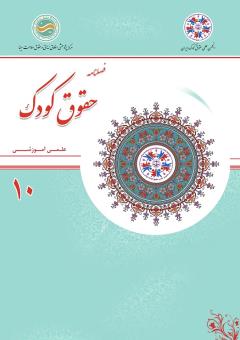نقدی بر محدوده حضانت کودکان در حقوق ایران با تأکید بر مبانی فقهی
محورهای موضوعی : حقوق کودک
1 - گروه حقوق خصوصی، دانشگاه پیام نور، تهران، ایران
کلید واژه: حضانت, کودک, بلوغ, رشد, قاعده لاضرر ,
چکیده مقاله :
زمینه و هدف: در سایه حکم مقرر در ماده 1210 قانون مدنی، می توان به صغاری که به مرحله بلوغ رسیده اند اجازه داد که قبل از رشیدشدن، از حضانت والدین و سرپرستان خارج گردیده و بهطور مستقل به زندگی خویش ادامه دهند. پرواضح است که چنین حکمی متضمن آسیب های فراوانی برای صغار خواهد بود. حال سؤال این است که آیا در پرتو قاعده لاضرر میتوان گامی در جهت حمایت بیشتر از کودکان برداشته و دامنه اجرای این حکم قانونی را محدود ساخت؟ نگارنده در این نوشتار درصدد است که با تکیه بر برخی از نظرات و قواعد فقهی و اندیشههای حقوقی پاسخ مناسبی را برای این سؤال ارائه نموده بهگونهای که مصالح صغار نیز بهتر تأمین گردد. روش: این پژوهش با استفاده از اسناد و منابع کتابخانهای و به روش توصیفی - تحلیلی انجام یافته است. یافتهها: خارج شدن طفل از حضانت والدين قبل از رسیدن به سن رشد، برخلاف اهداف مراقبتی و تربیتی بوده و میتواند صدمات جبرانناپذیری را در وهله اول به فرزند و سپس بر جامعه تحميل نماید. ولی متأسفانه باید اذعان نمود که در سایه تفسیر ظاهر ماده 1210 قانون مدنی، امکان خروج زودهنگام صغار از حضانت و بروز چنین صدماتی برای آنها در حال حاضر وجود دارد. پس باید تا پیش از اصلاح تقنینی، تدبیری در تفسیر و اجرای حکم قانون اندیشید تا از وقوع چنین وضعیتی در خانواده و جامعه جلوگیری گردد. نتیجهگیری: در حال حاضر باید با تکیه بر برخی از نظرات فقهی و نیز قاعده لاضرر، استمرار حضانت اطفال تا رسیدن به مرحله رشد را الزامی دانست.
Background and Aim: Under the rule stipulated in Article 1210 of the Civil Code, minors who have reached puberty can be allowed to leave the custody of their parents and guardians and continue their lives independently before mentally mature. It is clear that such a rule will involve a lot of damage for minors. Now the question is if in the light of principle of harm, a step can be taken to protect children more and so limit the scope of this legal ruling? In this article, the author is trying to provide an appropriate answer to this question by relying on some jurisprudential opinions and rules and legal ideas so that the interests of minors were better considered. Method: This research has been done using documents and library resources and descriptive-analytical method. Results: Leaving a child out of parental custody before reaching mentally mature is against the goals of care and education and can cause irreparable damage to the child first and then to the society. But unfortunately, due to the interpretation of Article 1210 of the Civil Code, there is a possibility of minors leaving custody early and causing such injuries to them. Therefore, before the legislative reform, it should be thinked about the interpretation and implementation of the law in order to prevent such a situation in the family and society. Conclusion: Currently, based on some jurisprudential opinions as well as the principle of harm, it is necessary to consider the continuation of custody of children until they reach the mentally mature stage.
1. Maalouf L. Al Munjid fi al Lughah. Beirut: Dar al Mashreq; 1973. p. 139. [Arabic]
2. Masoud J. Al Raed. Translated by Anzabi-Nejad. Tehran: Astan Quds Razavi, Printing and Publishing Institute; 1995. [Persian]
3. Mahmasani S. Al-mabadi' al-shar'iyyah wal-qanuniyyah. Beirut: Dar al-ilm lil-Malayin.; 1959. p. 71.
4. Ameli Jubai Z. (Shid Thani). Mesalek al-Afham. Vol. 8. Qom: Institute of Islamic Studies; 1995. p. 421. [Arabic]
5. Najafi MH. Jawahir al-Kalam. Vol. 31. Beirut: Dar Al-Ahya Al-Turath Al-Arabi, 1981. p. 283, 300. [Arabic]
6. Jafari Langroudi MJ. Extensive in legal terminology. Tehran: Ganje Danesh; 1999. p. 1666. [Persian]
7. Mohaghegh Helli N. Sharaye al-Islam fi masa'il al-halal wal-haram. Vol. 2. Tehran: Esteghlal Publications; 1988. p. 346. [Arabic]
8. Tabatabaei SA. Riyaz al-Masal. Vol. 12. Qom: Islamic Publication Institute; 1991. p. 155. [Arabic]
9. Sheikh Tusi MH. Al-Mabsut fi fiqh al-Emamiyyah. Vol. 6. Tehran: Al-Maktabeh al-Mortazawieh; 2008. p. 39. [Arabic]
10. Sistani A. Menhaj al-Salehin. Vol. 3. Qom: Madin Publications; 2005. p. 122. [Arabic]
11. Makarem Shirazi N. Jurisprudence Rules. The first part. Qom: School of Imam Ali Ibn Abi Talib (AS); 2006. p. 57. [Arabic]
12. Sefati Z. Another solution to the child custody issue. Strategic studies of women. 2000; 7: 24-35. [Persian]


